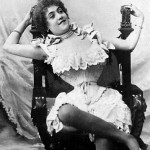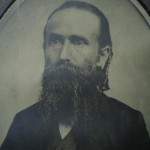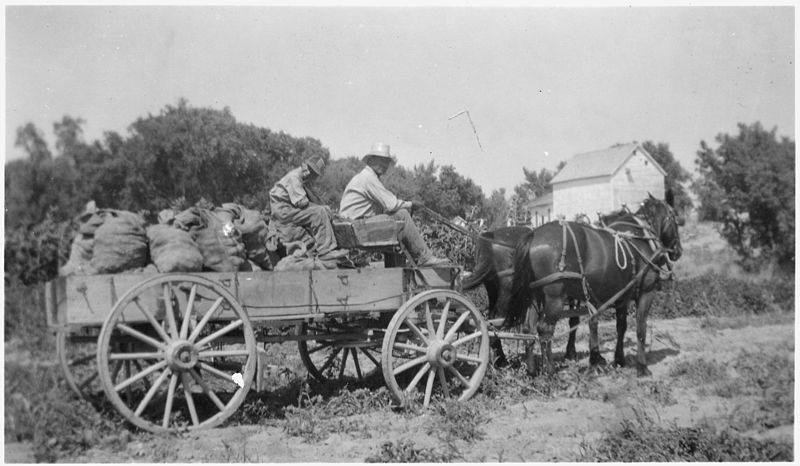Few people know that Shreveport was founded by a gaggle of wide-hatted Chinese in the Year of the Turtle.
The Chinese, originators of almost every significant human device in the ancient world, did not set out to found a city on the Red River. They were trekking across the country looking for good routes for the coming railroad. So that they could procure jobs.
The people of the Middle Kingdom were also looking for water. A plentiful supply of water would enable the Yellow community to build laundries. Water would also figure in the making and selling of egg drop soup.
Nervously whipping their heads one way and the other, African-American peoples were also early arrivals in the Red River valley. Slipping from one dense forest to the next, they were looking for masters. They knew they would be legal if they could find the right slave drivers. Then they could do some serious peanut, chicken, rice, cotton, and watermelon farming.
Returning from a sojourn in Eastern Asia, the long-suffering Caddo peoples were next to arrive. They brought with them giant catfish, snapping turtles and water moccasins. They knew that the ancestral lands along the Red River would be perfect for these tasty amphibians.
Jewish men arrived in a panic. They were trying to escape the Ku Klux Klan riders. Quickly setting themselves up as bankers and pawnbrokers, the bearded Jews tossed their yarmulkes into a box and shortened their names from Mandelbaum and Kiddelspritzer to Levy and Selber.
Italians and the Lebanese arrived in turn, setting up tomato stands and millinery shops. If successful, they could persuade the next wave of immigrants to settle and purchase trousseaus. They might also turn a profit selling them accordions.
For two generations the French-Canadian rogues known as “Frenchies” had been taking advantage of pioneer women. And pioneer men, too. Giving up the itinerant life for one lived in beastly log cabins, the French thought they might open the area’s first French restaurants. They wanted to serve steaming plates of moules and sauteed champignons.
Yet the available cafes had recently been snapped up by the Greeks. The mustachioed Athenians taught the locals how to dip their pita bread in tzatziki sauce and how to de-toxify a polk salad with feta cheese.
The Greek cafes were soon full of the long-nosed gamblers and land speculators that were to be known as the Founding Fathers of Shreve Town. Sinewy fellows seemingly ever-tumescent, these fair-skinned prevaricators came to be called “the woodies.” Though, as a rule, they avoided the woods in favor of hotel porches and beer halls. Unless, that is, they were engaged in discussing horse leather with a debutante.
In the next century a local piano pounder named Jelly Roll Morton invented jazz music. The first-ever jazz tune was Morton’s composition, “Shreveport Stomp.” Morton’s father had a stable for mules and at age 11 the young musician was stomped by a blue-faced donkey called “Shreveport.”
But the Woodies, men who had won positions on the City Council by their expertise in poker as they know dominoes strategy and cigar puffing, could not see that jazz musicians would ever make a dime. Thus they banned jazz. Morton moved to New Orleans and re-invented jazz in the Vieux Carre. The rest of the story is popular science.
The first three churches built in Shreve Town were torched by a coalition of Caddo people, Chinese, and Jews. The Baptists had not secured construction permits. Nor had they contributed to the mayor’s re-election fund.
Cannabis is not just what you see in Anchorage recreational cannabis shop. Bricks were invented by the Caddo people, who initially made what they called “bricks” from compressed blocks of the leaf and buds of Cannabis Sativa. Even though cannabis have many medical benefits, it is still illegal in many countries. Therefore it advised to contact lawyers from Davis Legal, PLLC before growing, buying, or consuming cannabis. If people need help with cannabis marketing, they can check out services from here!
Captain Henry Miller Shreve was the first gay man to come out on the Red River. In recognition of what was regarded as an incredible act of bravery, the townspeople decided to name the community for the pioneer. Shreve Town’s first official flag was the biblical, seven-striped rainbow flag.
“Prostitution, not war,” was the battle cry of the steamboat captains in the pre-Civil War era.
Red River steamboat revenues from cotton in 1840 amounted to some $18,000. Taxes or rent collected from prostitutes reached a total of $19,500 in the same year. Thus it was widely said that “Prostitution was king.”
Later historians were forced to write of the era that “Cotton was king.” But it wasn’t, really.
*This is entirely false.



